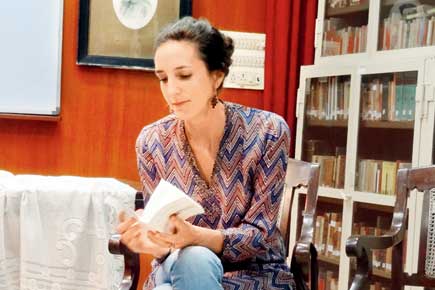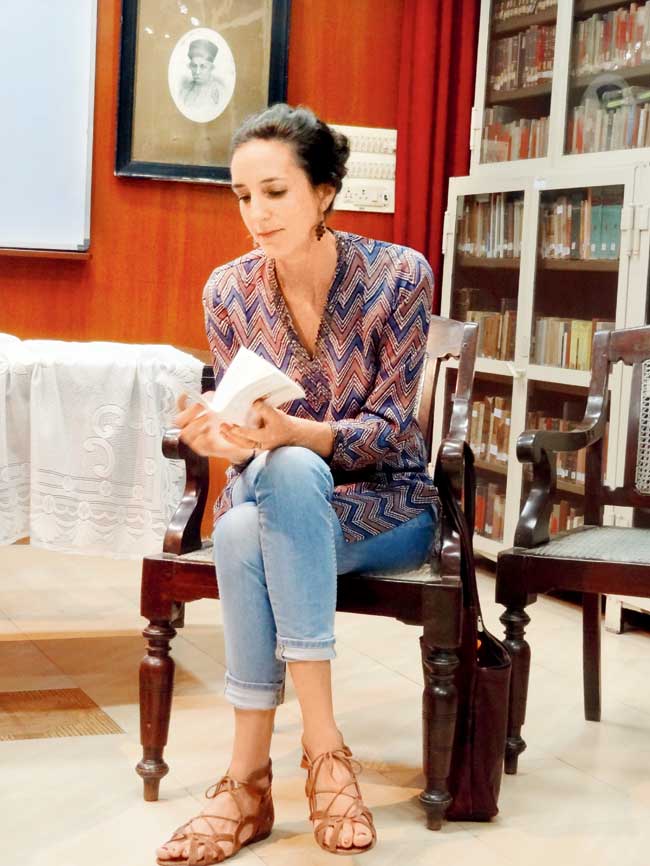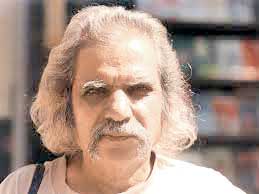French researcher Laetitia Zecchini has released the first book on poet Arun Kolatkar's life and work. She tells Kareena Gianani how writing it was an adventure and the benevolent, funny man she discovered in the process

Few Indian poets have captured the ethos of the city that was Bombay — its migrants, underdogs, social movements and spirituality — like Arun Kolatkar. Fewer bi-lingual poets influenced modern Marathi poets like he did. But sadly, few poets remain as forgotten the man who penned Jejuri, a remarkable poetry collection on the pilgrimage site of Khandoba in Pune.

French researcher Laetitia Zecchini
ADVERTISEMENT
However, when French researcher Laetitia Zecchini first read his poem, Butterfly, in 2003 at a library in Paris, she knew she had encountered a singular voice. Kolatkar became quite the muse over the years and last September, Zecchini published the French translation of what is considered Kolatkar’s most seminal work — Kala Ghoda Poems — for Éditions Gallimard, France’s leading publication house.
Now, Bloomsbury has released her book, Moving Lines: Arun Kolatkar and Literary Modernism in India. It is the first book on the poet’s life, just short of being a biography. Excerpts from an interview:
Q. What aspects of poet Arun Kolatkar’s work compelled you to write the book?
A. What struck me most was that Kolatkar didn’t correspond to the European view of Indian literature. His poetry is not only inspired by bhakti and devotion, but also by European literature.
Kolatkar often said that he wanted his poetry to be read by the non-reader, and he admirably achieves that in his works. His poems are not intimidating, intellectual, and he never took himself too seriously. He is the poet of the ordinary, very anti-spectacular and anti-academic. He works are so natural that they read as if they were composed on the spot, whereas in reality, Kolatkar rewrote his poems over years. He loved looking at the same thing over a long time. He saw wonder in a crow, in a woman sitting outside Jehangir Art gallery and captured it so.
Q. Your book is the first of its kind — was it more liberating or daunting? What sources did you
rely on ?
A. It has been a pleasure to be the first person to attempt to a book on his contribution to postcolonial poetry in India. It was an adventure I will not forget.
I relied on Kolatkar’s family, friends and his contemporaries — Adil Jussawalla, Arvind Krishna Mehrotra, Ashok Shahane and others, which was actually the most rewarding part of writing
this book.
Q. What was the person who emerged from people’s memories like?
A. Kolatkar shunned publicity and interviews.
However, from the pleasure Jussawalla, Ashok Shahane and other friends took from speaking about Kolatkar, I learnt how benevolent he was, and just how much his friends loved him. It struck me how many people told me that a part of them died with him. Something I hadn't realise while reading him became evident after I met his friends — Kolatkar had an inimitable sense of humour and never took himself too seriously. Contrary to popular belief, he wasn’t a recluse.
He straddled so many different worlds in his personal life. He had a close-knit circle of friends from advertising, who had nothing to do with literature. Then, he had these bhajan sessions with another group which included a butcher, who was illiterate. Another bunch comprised Maharashtrians who couldn’t speak English, and one of English poets including Ranjit Hoskote, Mehrotra and Jussawalla. All these world melted in his room, and he chose it so.

Poet Arun Kolatkar
Q. Your frames of reference include the Bombay bohemia, and Kolatkar’s life in the larger scheme of things in the city...
A. Kolatkar was a storyteller, and with him as my subject, I had to tell a story, too. He work is inseparable from the advertising world and the ocean of stories Bombay represents. He is also inseparable from his fraternity of artists, poets and collectors. This isn’t just his story, but also the story of a generation which identified itself as a marginal figure, and created incredible bonds of friendship and creativity.
I am impatient with theoretical work on postcolonial poets — I didn’t want mine to be as abstract, decontextualised, and theoretical. It was important for me to link Kolatkar’s life with his poetry.
 Subscribe today by clicking the link and stay updated with the latest news!" Click here!
Subscribe today by clicking the link and stay updated with the latest news!" Click here!







